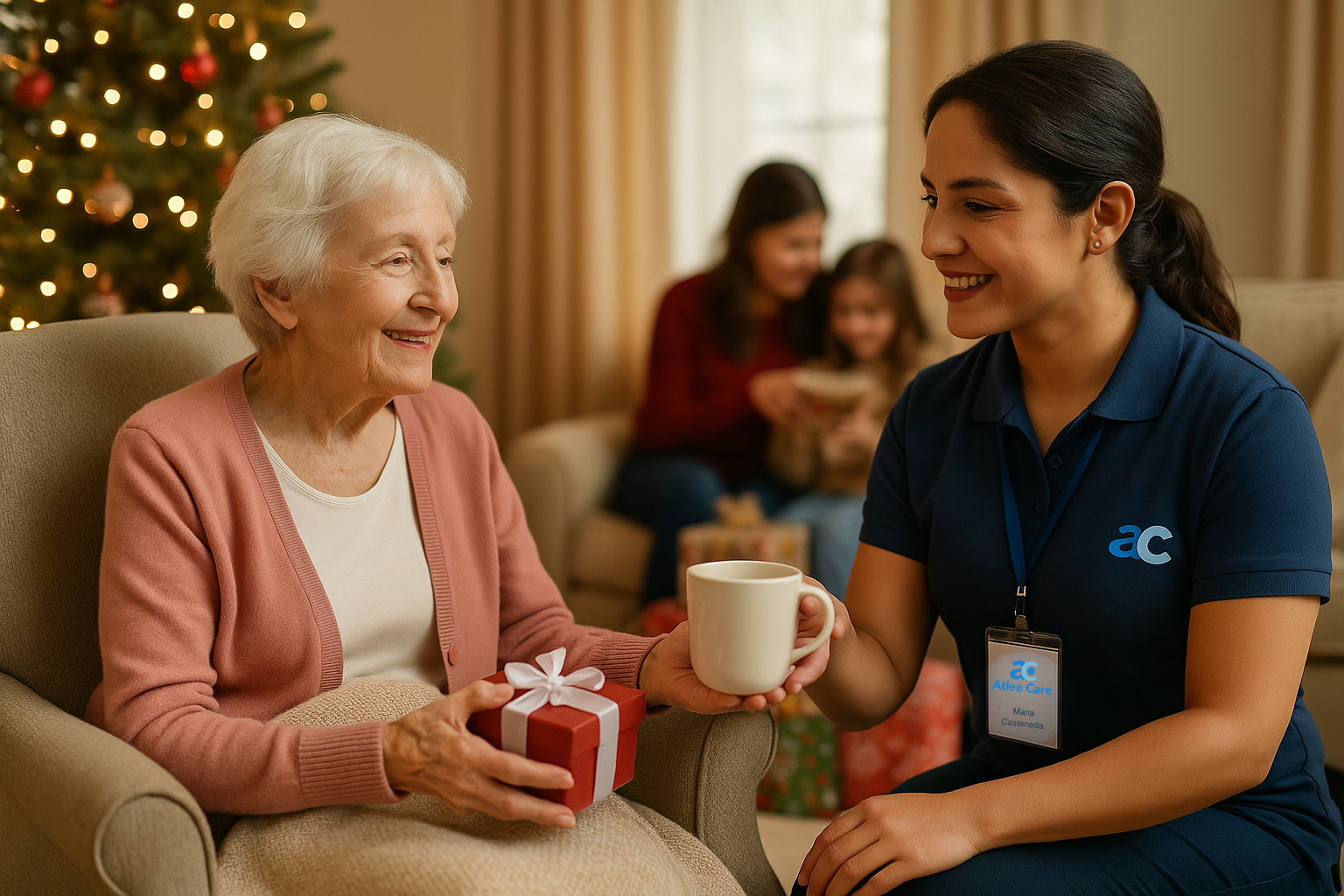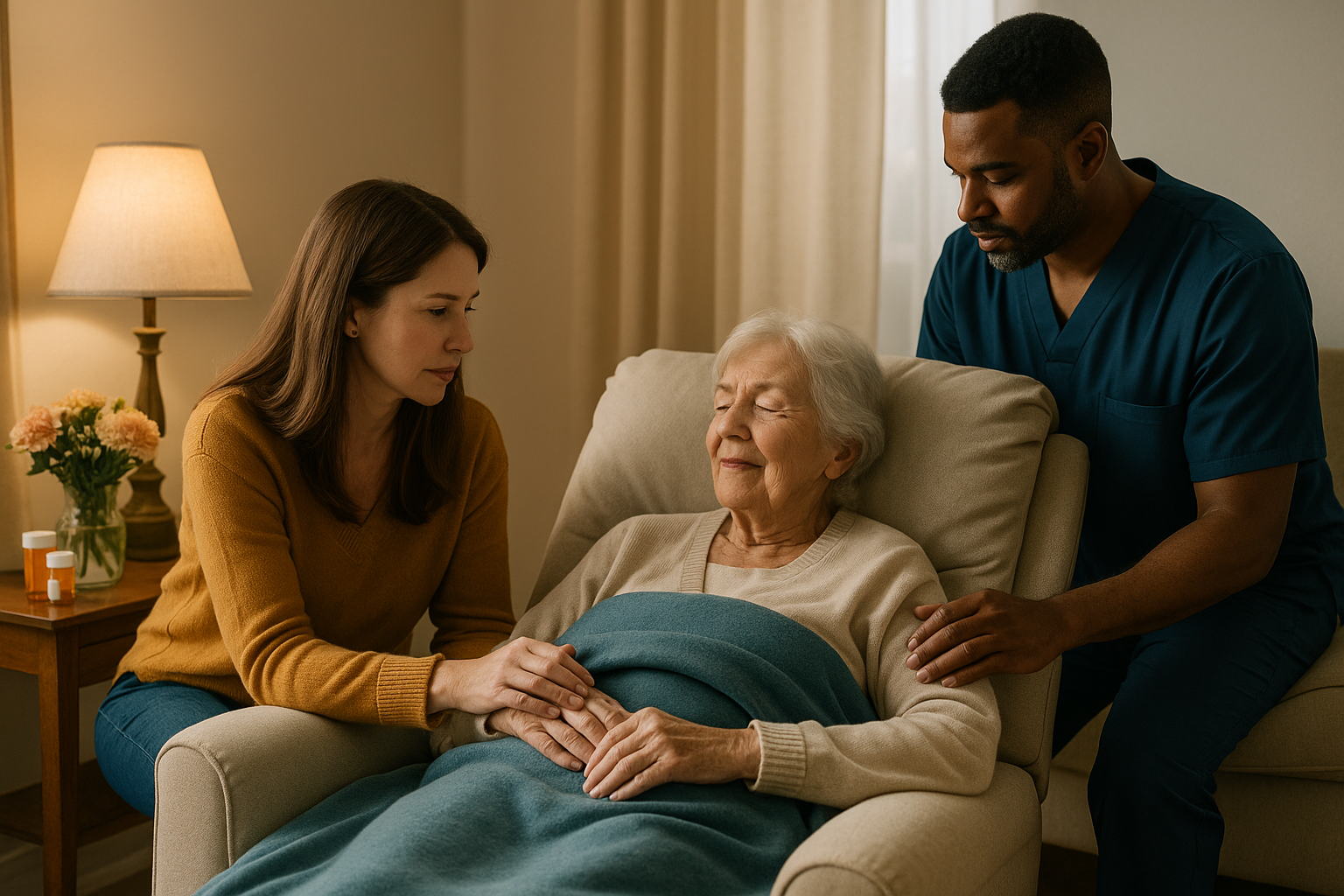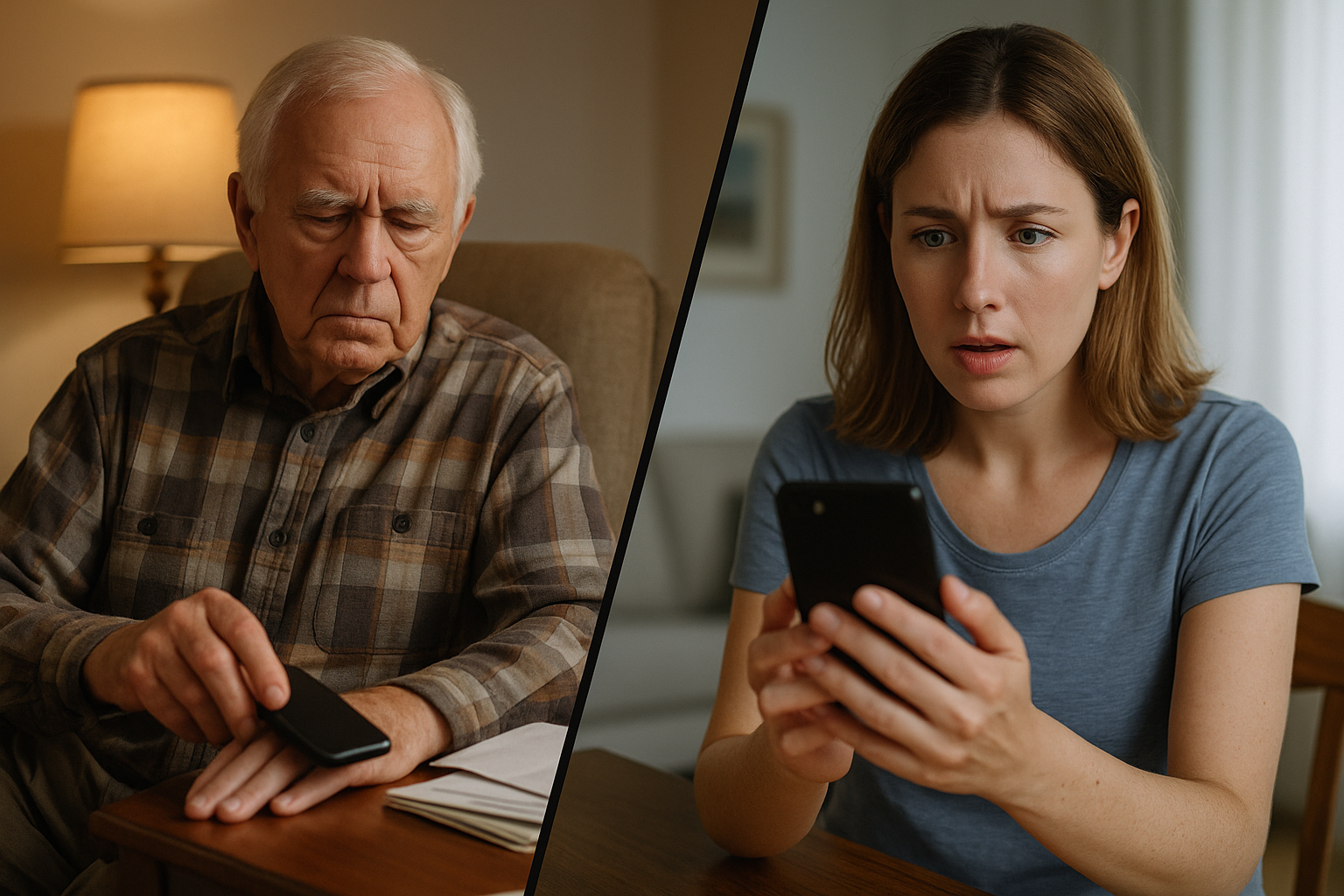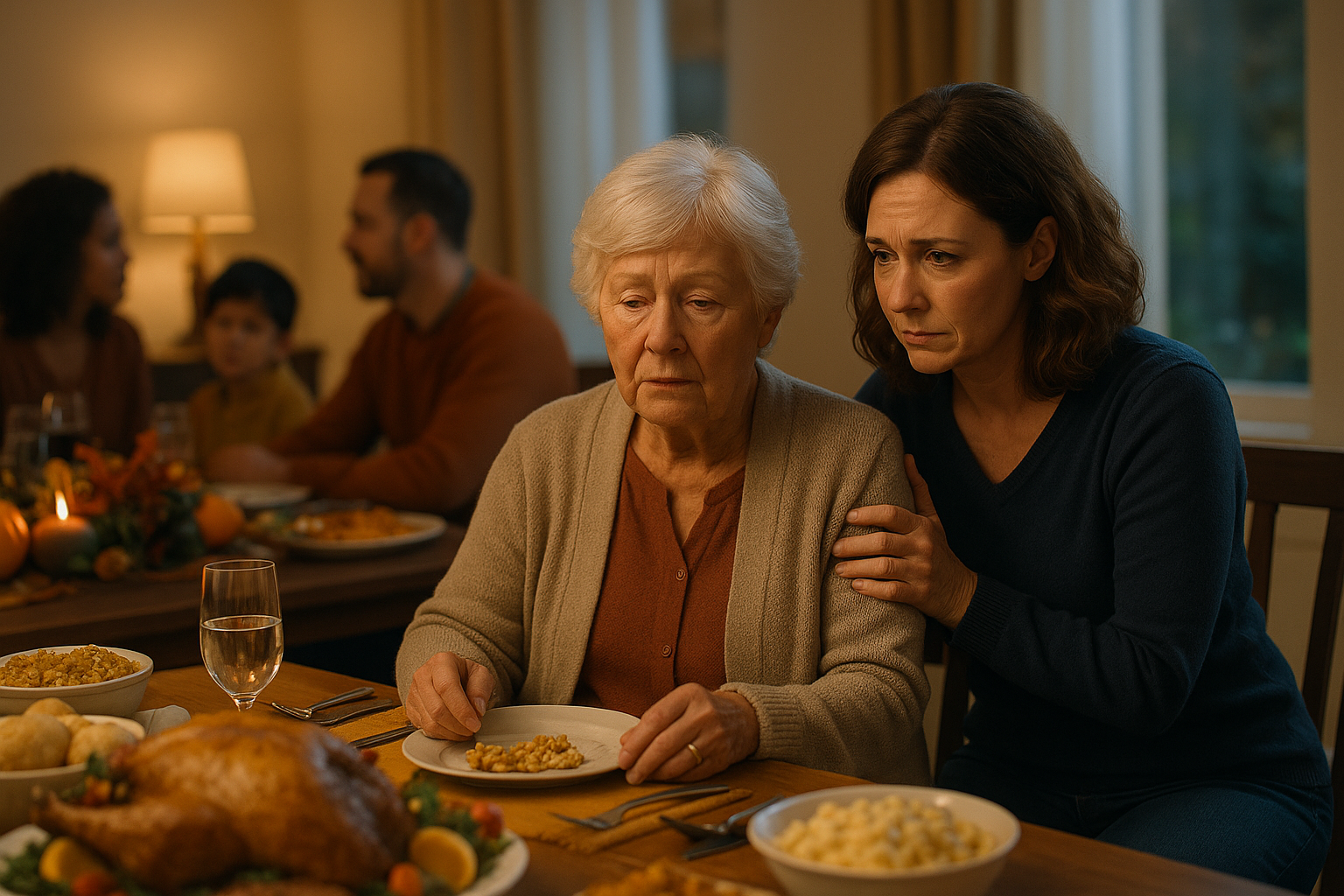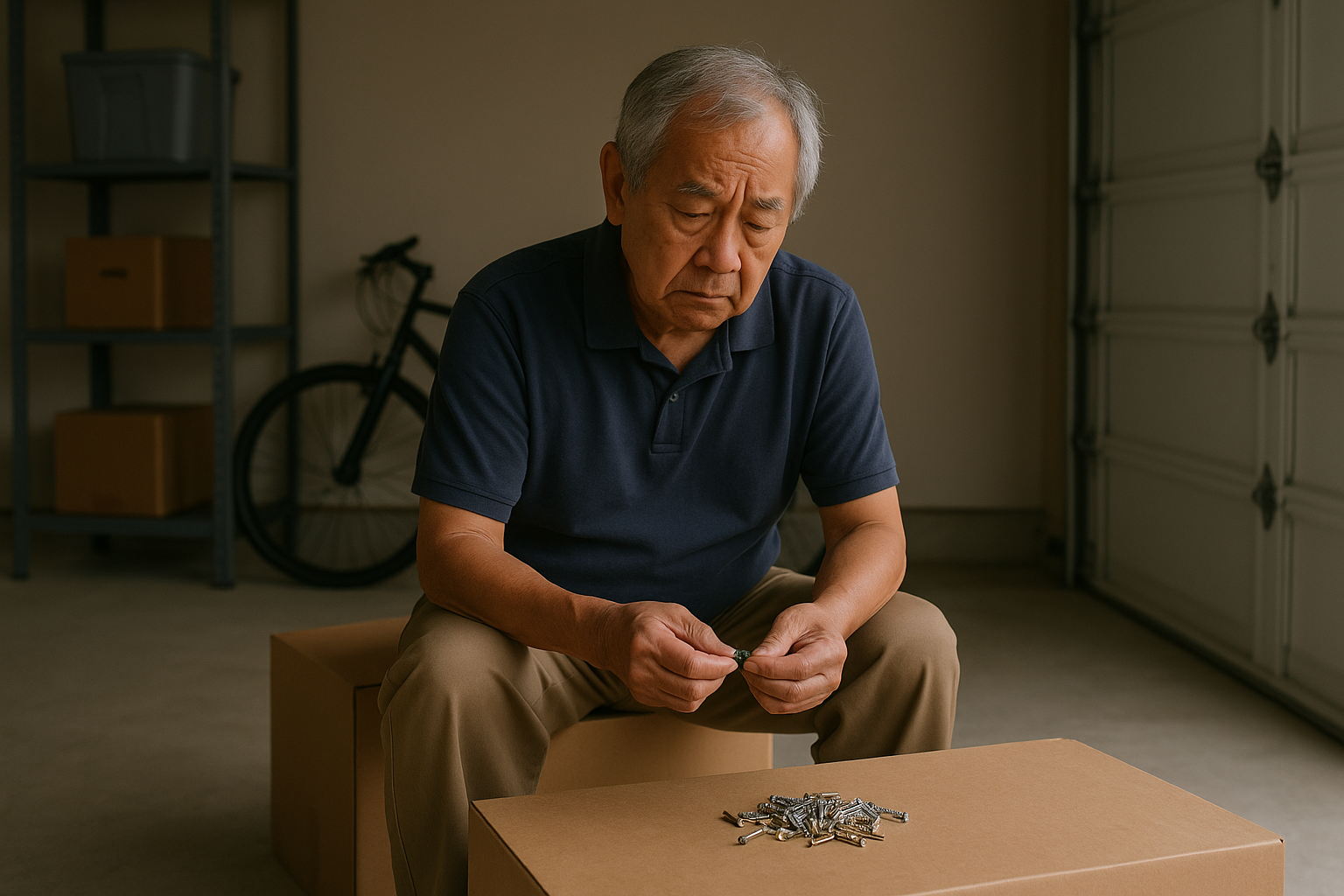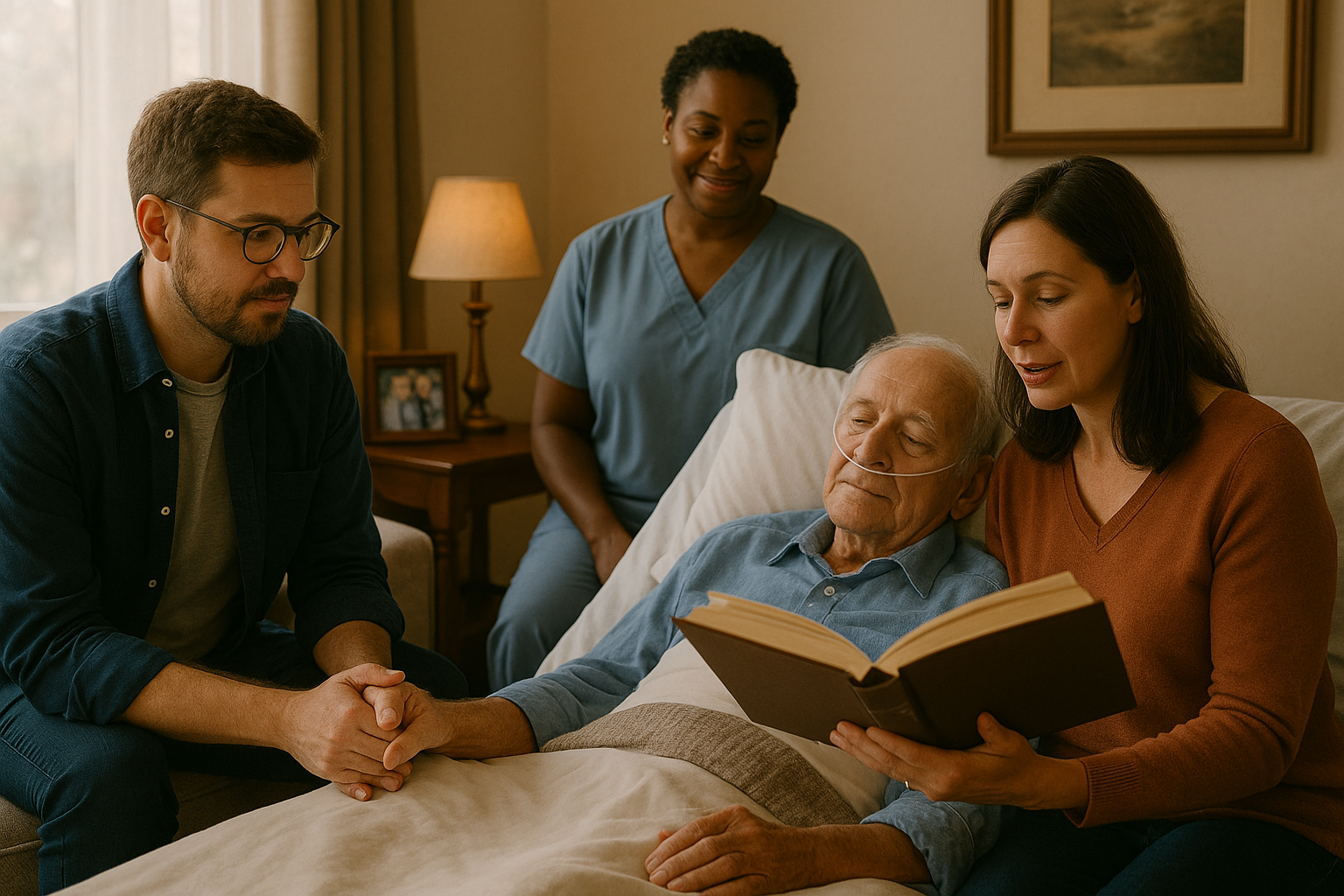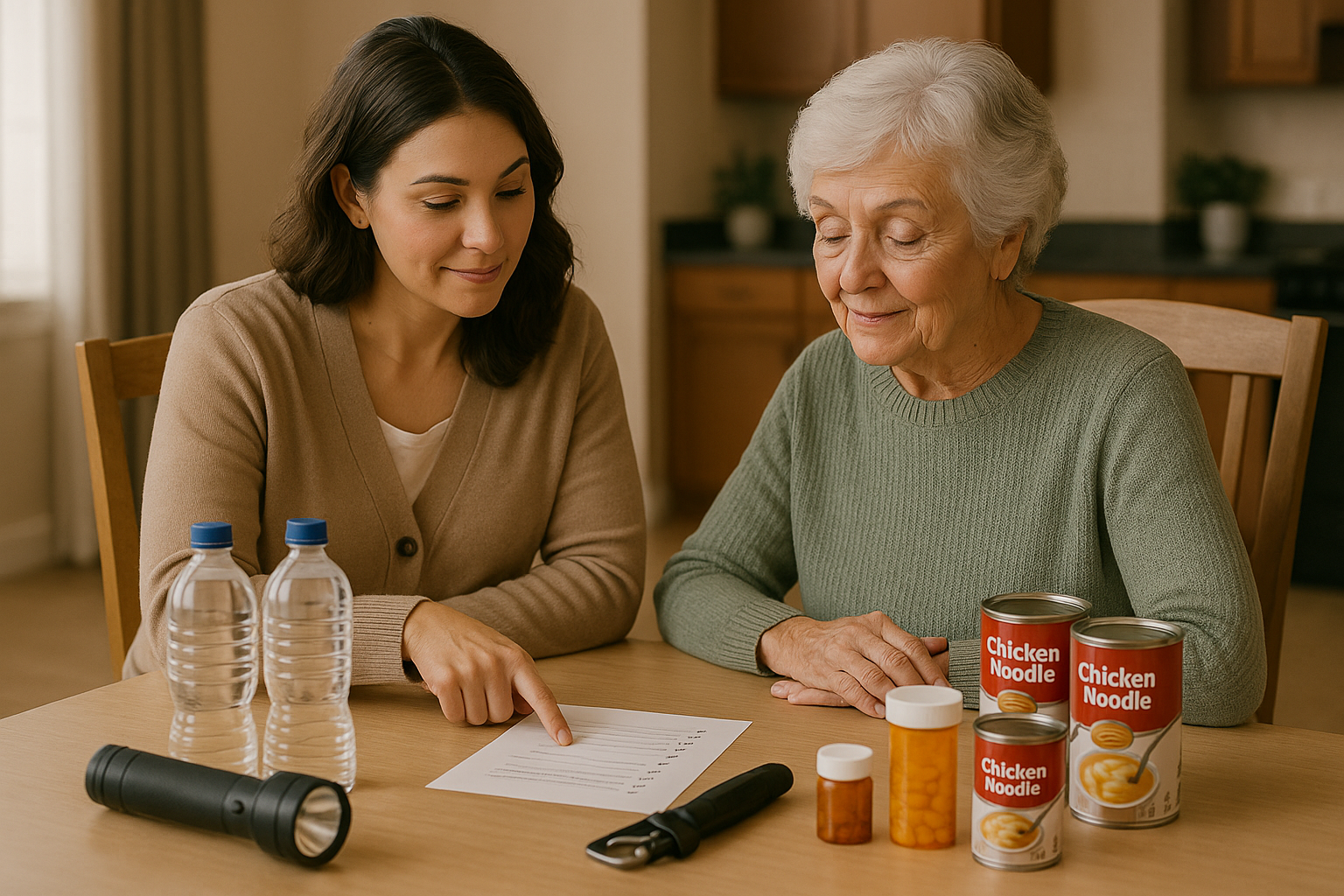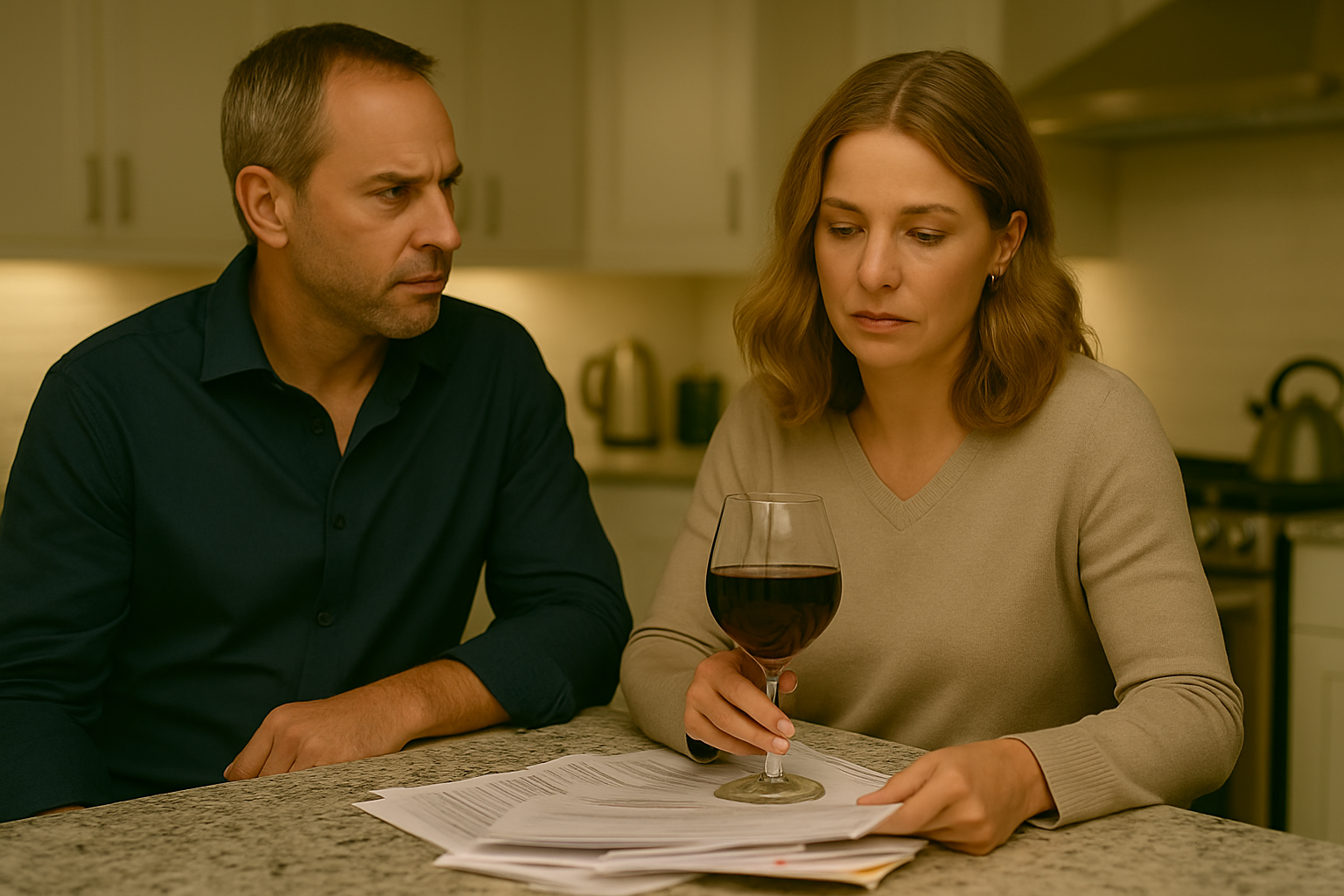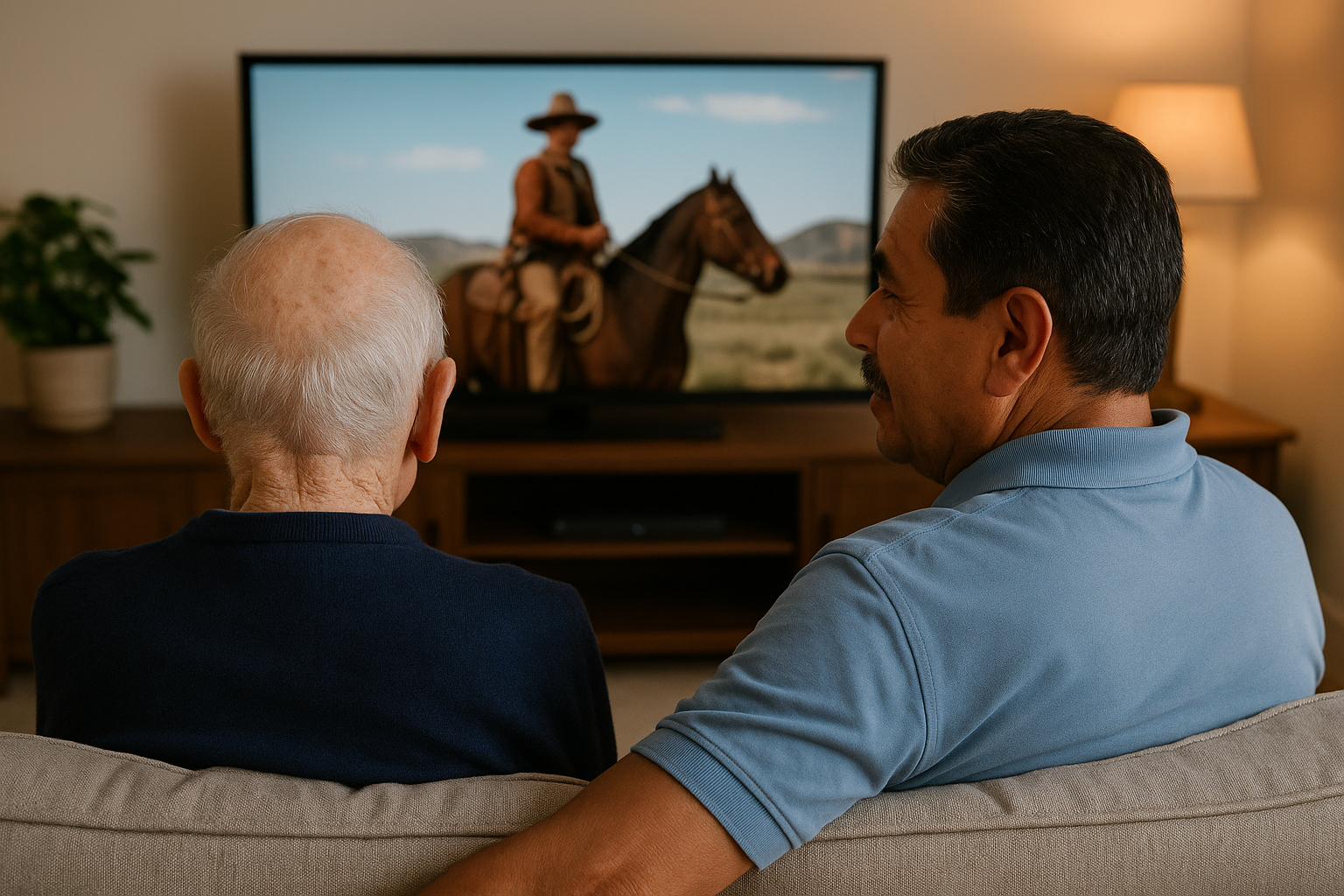From Broken Hip to Home
Frank's Rehab Recovery Story
How one son helped his father return to independent living after a broken hip, without moving him to assisted living
Mark Sullivan got the call every adult child dreads.
"Mr. Sullivan? This is Presbyterian/St. Luke's Hospital. Your father Frank was brought in by ambulance this afternoon. He's had a fall."
Frank Sullivan, 83, had lived happily at The Gables independent living community in Littleton for three years. Active, independent, proud. He played cards with friends, attended community dinners, and managed his own apartment.
Until he didn't catch his foot on the bathroom rug one Tuesday morning.
The Fall That Changes Everything
Broken hip. Surgery. Two weeks in the hospital, then three weeks at a skilled nursing facility for rehab.
"Your dad's doing great," the physical therapist told Mark during week two of rehab. "He's motivated, following protocols, making excellent progress with his walker."
Then came the question Mark had been avoiding: "Have you thought about what happens when he goes home?"
The Assessment That Determined Everything
During Frank's third week in rehab, Jennifer Chen, the Health Services Director at The Gables, scheduled her pre-discharge assessment at the rehab facility.
This is standard protocol. Before any resident returns to independent living after hospitalization, the facility's health services team evaluates whether they can safely return and what support they'll need.
Jennifer reviewed Frank's progress with the rehab team, observed his mobility with the walker, and assessed his ability to manage daily tasks.
Then she called Mark.
"I completed Frank's assessment today," Jennifer said. "I have good news. Your dad is doing well enough to return to independent living. He doesn't need assisted living."
Mark felt relief wash over him.
"However," Jennifer continued, "Frank is going to need daily assistance during his recovery period. He's mobile with the walker, but he needs someone monitoring his safety, helping with his morning routine, providing medication reminders, and ensuring he's eating properly."
Jennifer explained that many families bring in private caregivers for these transition situations. "I work closely with Atlee Home Care for situations exactly like this. They're excellent at providing that bridge support when residents return from rehab. Would you like me to have them reach out?"
Frank's discharge was scheduled for Thursday. Mark needed help in place. "Yes, please."
The Call That Made the Difference
That afternoon, Lori from Atlee Home Care called Mark.
"Jennifer Chen at The Gables asked me to reach out," Lori began. "She completed your dad's assessment today and shared that he's ready to return home but will need some support during recovery."
Lori had already reviewed Jennifer's assessment notes. But her first question surprised Mark.
"Tell me about your dad."
Mark found himself explaining Frank's personality (proud, independent, stubborn). His life at The Gables. The fear of another fall.
"Mark, your dad doesn't need to move to assisted living," Lori said. "He needs support during recovery so he can stay exactly where he is. We work with Jennifer and The Gables team regularly."
Lori asked detailed questions about Frank's mobility, medication schedule, and daily needs. Then she explained the plan:
"We'll match Frank with Maria. She's experienced with post-hip surgery recovery and works regularly in Denver senior communities. She'll meet you at Frank's apartment Thursday at 2:30 PM, right after discharge. I'll coordinate with Jennifer about Frank's schedule and facility protocols."
First week: 12 hours daily. Then adjust based on Frank's progress and Jennifer's recommendations.
Mark felt the weight lift. This was a coordinated care team working together.
Thursday: The Homecoming
When Mark and Frank arrived at The Gables Thursday afternoon, Maria was waiting by Frank's apartment door. Jennifer was there too.
"Mr. Sullivan! Welcome home," Maria greeted warmly. "I'm Maria. Jennifer and I have been working together to make sure everything's ready for you."
Jennifer smiled. "Frank, Maria is going to be your support person during recovery. She knows your schedule, your medications, and exactly what you need. And I'm right downstairs if either of you need anything."
Frank looked uncertain. "I can manage on my own."
"I'm sure you can," Maria said easily. "But humor me for a few days while you get your strength back. Deal?"
Something in her tone made Frank relax slightly. "Deal."
The First Week: Coordinated Care in Action
Maria helped Frank settle in, organized his medications according to discharge instructions, and noted the bathroom rug that needed removing. She coordinated with Jennifer on safety concerns.
Each morning, Maria arrived at 8 AM. She reminded Frank about his medications, prepared breakfast, and stayed nearby during his shower in case he needed balance assistance.
Mid-week, Jennifer stopped by during her rounds. "How's it going?"
"Maria's keeping me on track," Frank admitted.
Jennifer made a note. The coordination was working exactly as planned.
By Saturday, Frank attended the community coffee social with Maria walking alongside. His friends welcomed him back. Maria stayed nearby but didn't hover, preserving Frank's dignity while ensuring his safety.
Jennifer, passing through, caught Maria's eye and gave a subtle thumbs up. Frank was re-integrating into community life.
What Made This Work: The Partnership Model
Over the following weeks, Mark noticed Frank's care wasn't fragmented. It was genuinely coordinated.
Maria and Jennifer checked in regularly. When Frank complained about medication side effects, Maria mentioned it to Jennifer, who followed up with Frank's doctor. When Jennifer noticed Frank missing activities he usually enjoyed, she mentioned it to Maria, who encouraged him to attend.
"This is how it should work," Jennifer told Mark. "Maria provides the daily support Frank needs. I monitor his overall health as part of my facility role. We communicate. Your dad gets comprehensive care without having to move to assisted living."
Week Three: Scaling Back
Three weeks post-discharge, Mark met with Frank, Maria, and Jennifer to assess progress.
Jennifer had completed her follow-up assessment. "Frank's mobility has improved significantly. He's attending community dinners regularly. From my perspective, he's thriving."
Frank felt ready to scale back. "Maybe Maria just mornings? Five days a week?"
Jennifer agreed from a clinical perspective. Maria concurred. "We could reduce to six hours daily now, focusing on mornings and evenings. Then we can coordinate with Jennifer on any concerns as you continue improving."
The cost dropped significantly. Still providing support, but reflecting Frank's improved independence.
Three Months Later: Independence Maintained
Mark visited his dad on a Saturday afternoon. Frank was heading to a community lecture, walking confidently with his cane. Jennifer had signed off on the transition from walker to cane two weeks earlier.
"How's it going with Maria?" Mark asked.
"She's been wonderful," Frank said. "Started at twelve hours a day when I first got home, now we're down to mornings and evenings. But I'm managing most things myself during the day now."
Frank had never moved to assisted living. He'd recovered in place, with exactly the support he needed.
"You know what I'm most grateful for?" Frank asked. "That Jennifer and Maria worked together to help me keep my independence. I didn't have to choose between being safe and staying home."
Understanding Post-Hospital Recovery in Senior Communities
If your parent lives in independent living and faces discharge from the hospital or rehab, here's what you need to know:
- The Pre-Discharge Assessment: Health services directors evaluate current mobility, medication management capability, cognitive function, and support needs to determine if residents can safely return to independent living.
- What Independent Living Provides: Community, dining options, housekeeping, activities, emergency systems, health monitoring
- What Independent Living Cannot Provide: Daily medication reminders, personal care assistance, constant safety monitoring, help with mobility, meal preparation in apartments
- The gap is where private caregivers make the difference.
How Atlee Partners with Senior Communities
We work regularly with Denver-area communities, including Ascent Senior Living, MorningStar, and Brookdale.
Our caregivers coordinate with health services directors, work within community protocols, communicate about resident progress, and integrate seamlessly with facility care.
The registry model allows direct relationships between families and caregivers, enabling personalized support that adapts to changing needs.
The Question to Ask
When told your parent "needs more care," ask their health services director:
- Can my parent return to independent living with additional support?
- What specific assistance do they need?
- Do you work with private caregivers in your community?
- Can you recommend care providers you trust?
Often, the answer opens a path to recovery in place rather than relocation.
Frank's Perspective
"I was terrified to come home after rehab. But Jennifer's assessment gave me hope. She said I could come home if I had help. Then she connected us with Maria, and suddenly I had a team.
Now I'm back to my life. Same apartment. Same friends. Same independence. Just with people making sure I stay safe. That's not giving up independence. That's choosing to keep it with the right support."
Concerned about your parent's return home from the hospital or rehab?
📞
Call Atlee Home Care: (720) 278-8708
🌐
www.atleecare.com
Because recovery doesn't require relocation. Sometimes it just requires the right support, professional coordination, and a care team working together.

